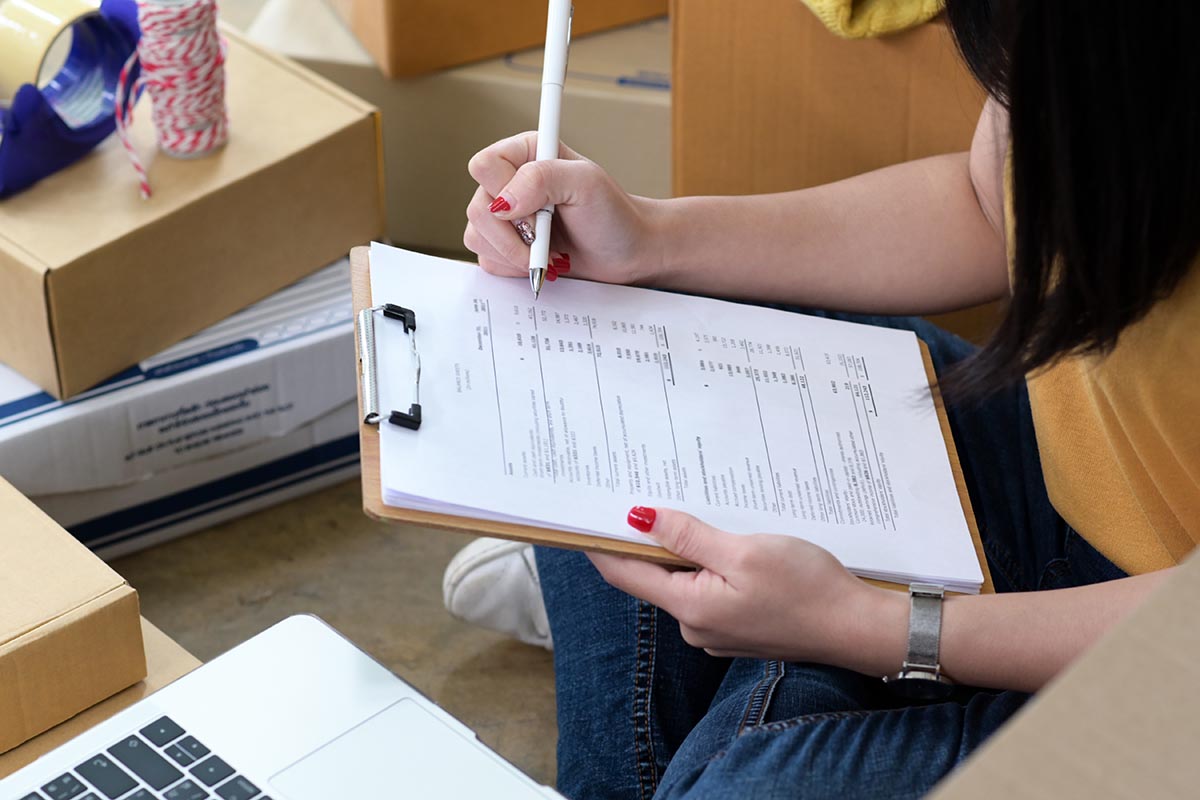The Moving Checklist Everyone Needs
Moving to a new home is a significant life event that can be exciting and challenging. Whether relocating to a different city, state, or just down the street, the process can be overwhelming if not properly planned and organized. A well-structured moving checklist is a crucial tool that can help you stay on top of your move, reduce stress, and ensure that nothing falls through the cracks. This comprehensive guide will walk you through a moving checklist that covers everything you need to consider before, during, and after your move.
Preparing for the Move (6-8 Weeks Before Moving Day)
- Research Moving Companies: If you plan to hire a moving company or a freight forwarder, start your research early. According to the seasoned freight forwarders behind Wyton Transport, you must book your movers well in advance to secure your preferred moving date. Get quotes from multiple companies, read reviews, and check their credentials.
- Create a Moving Binder: Start by setting up a moving binder or folder to keep all your moving-related documents, receipts, and necessary paperwork organized.
- Declutter Your Home: Take this opportunity to review your belongings and decide what to keep, donate, sell, or throw away. The less you have to move, the easier the process will be.
- Create a Budget: Moving can be costly, so create a budget to track your expenses. Include costs for packing materials, moving services, travel expenses, and any unexpected expenses.
- Notify Important Parties: Inform your current and future utility providers, like electricity, gas, water, internet, and cable, of your move.
- Start Packing: Begin packing items you don’t use daily. Label your boxes with their contents as well as the room they belong to for easy unpacking.
- Collect Packing Supplies: Gather packing materials like boxes, tape, bubble wrap, packing paper, and markers. You can purchase them or collect free boxes from local stores.
- Create an Inventory List: Keep track of your possessions by creating an inventory list. This will be invaluable when unpacking and ensuring everything arrives safely.
Organizing the Move (4-6 Weeks Before Moving Day)
- Plan for Pets and Plants: If you have pets or indoor plants, make arrangements for their care during the move. Ensure they have the necessary vaccinations and documentation.
- Notify Schools and Medical Providers: If you have school-aged children, inform their current school of the move and request their records. Also, make arrangements with your medical providers to transfer your records or find new providers in your new location.
- Sort and Label: Continue packing room by room. Be meticulous with labeling boxes to make unpacking more efficient. Consider color-coding or numbering your boxes.
- Notify Friends and Family: Let friends and family know about your move and update them with your new address. You might also ask for their help or recommendations if they’ve moved recently.
- File Change of Address: Visit your local post office or go online to file a change of address with the USPS.
- Dispose of Hazardous Materials: Properly dispose of hazardous materials like chemicals, paints, and propane tanks, as moving companies typically cannot transport them.
Tackling the Final Preparations (2-4 Weeks Before Moving Day)
- Set Up Your New Home: If possible, visit your new home to take measurements and plan the arrangement of furniture and belongings. This can save time and effort on the moving day.
- Pack a Moving Day Essentials Box: Prepare a box with essentials you’ll need immediately upon arrival at your new home. Include items like toiletries, important documents, a change of clothes, and basic kitchen utensils. Continue packing, leaving only the essentials for the last week. Ensure everything is labeled correctly, and take pictures of valuable items for insurance purposes.
- Confirm with the Moving Company: Reconfirm all details with your chosen moving company, including specific requirements. Ensure you have a point of contact for the moving day.
- Arrange Childcare: If you have young children, make arrangements for their care on moving day. This will help you focus on the move without distractions.
- Review Your Moving Binder: Double-check your moving binder for missing or incomplete documents. Make sure you have all the necessary paperwork handy.
Moving Day (The Big Day)
- Early Start: Begin your moving day early. Have a hearty breakfast to give you energy for the day ahead.
- Take Photos: Before the movers arrive, take photos of your home’s condition. This can be essential if there are any disputes over damages.
- Supervise the Process: If you’re using a moving company, be present to supervise the loading process.
- Check All Rooms: Before leaving your old home, go through each room to ensure you haven’t left anything behind. Double-check that all doors and windows are locked and all appliances are turned off. Say goodbye to your old home and leave any necessary instructions for the new residents.
- Travel Bag: Keep your moving day essentials box with you, as well as important documents and valuables. These items should stay with you, not on the moving truck.
Unpacking and Settling In (After Moving Day)
- First-Day Essentials: Upon arrival at your new home, take care of the essentials from your moving day box. Make sure your utilities are up and running.
- Inspect Your Belongings: When your items are delivered, inspect them for damage. Note any issues on the moving company’s paperwork.
- Unpack Essentials: Begin by unpacking your first-day essentials and necessary kitchen items. Gradually empty and arrange the rest of your belongings based on your room-by-room labeling. Recycle or dispose of packing materials as you unpack. This will help keep your new home clutter-free.
- Explore Your New Area: Take some time to explore your new neighborhood, find local amenities, and meet your new neighbors.
- Furnish and Decorate: Start furnishing and decorating your new home according to your pre-planned layout. Take your time to make it feel comfortable and welcoming.
- Update Your Address: Notify your bank, credit card companies, and other essential parties of your new address. Ensure your vehicle registration and driver’s license are updated as well.
- Get Involved: Consider getting involved in your new community by joining clubs, attending local events, or volunteering. This can help you establish connections and feel more at home.
Moving can be a demanding process, but with a well-organized moving checklist, you can significantly reduce the stress and chaos that often accompany such a transition. By preparing in advance, staying organized, and following a structured plan, you can ensure a smoother and more enjoyable moving experience. Whether relocating across town or the country, a comprehensive moving checklist is the key to a successful move. So, start planning early, stay organized, and embrace your new adventure with confidence.



















